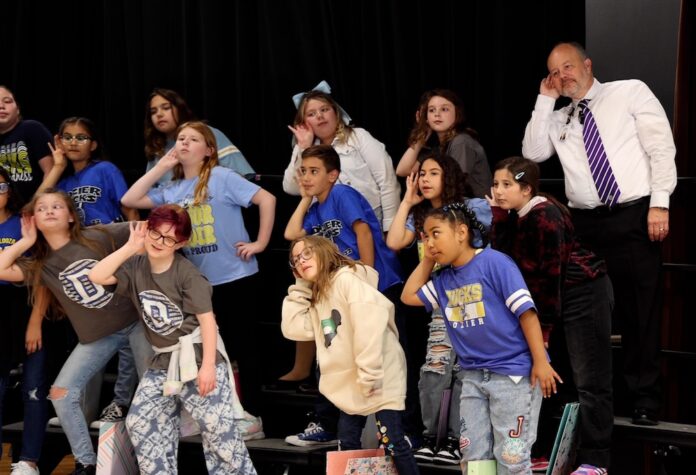Educators are parents, too. That’s a fact that Eagle Mountain-Saginaw ISD Superintendent Jim Chadwell would like more Americans to recognize as he and other K12 leaders grapple with a nationwide erosion of trust in public schools.
“We’re being placed like we have different philosophies—like we don’t have children; like we just operate as educators—there’s this idea that we can’t live these dual roles,” says Chadwell, who was recently named one of five finalists for Texas Superintendent of the Year. “Our community is very supportive of us but public trust in public education has been affected at a national and state level.”
That’s one reason Chadwell, whose district overs covers parts of Fort Worth and its suburbs, calls his job “infinitely more difficult than it was 13 years ago” when he took the helm at Eagle Mountain-Saginaw ISD. Another reason is that the role of superintendents has been diminished at the state level in Texas. A third is the narrative being created about public schools on social media.
“We call it ‘chasing rabbits’ and we chase a lot of rabbits,” he continues. “People can go online and create untruths and you can’t ignore it.”
Eagle Mountain-Saginaw ISD’s strategy for success
Chadwell and his team have made a habit of completing their strategic plans early. They are about to launch their third such plan in just over 10 years after extensive collaboration both inside and outside the district. “When you look through it, you won’t see my face all over it even though I’ve been deeply involved in all aspects,” he explains. “It’s not my plan. It’s our plan. It’s supposed to be the best of all of us.”
A major component of the strategic plan is bolstering the continuity of resources and instruction for the 23,000 students at Eagle Mountain-Saginaw ISD’s 27 schools. The goal is for parents to have lots of good choices when picking a school. “We work really really hard that no matter what classroom you’re in, you have all the resources you need, a quality teacher, and a quality facility, and a quality school, and a quality environment,” he explains. “That is what we obsess about, so that people can’t look and say, ‘This (school) is better than the other.'”
Last year, the school board approved the creation of a districtwide police department. At each campus, police are greeting students and parents, providing children with positive experiences of law enforcement, says Chadwell, whose father, a police officer, died in the line of duty when the future educator was nine years old.
Despite having to go into a budget deficit to place an officer on every campus—as the state of Texas now requires—Chadwell says he sleeps a little better at night knowing there is a higher level of security at each school. He’s also excited about the climate of support that’s building between educators and teachers at his three high school schools, which increasingly view each other as sister schools that can share “game plans.”
Outside of the athletic arena and with a fourth high school under construction, he doesn’t want a district full of rivals who are working against each other in the academic, artistic or professional realms. “If teachers feel like they’re competing with one another, then they’ll be motivated to not support each other,” he contends. “That works for football, it works for soccer, it does not work for math. We have to support one another, we’re not holding out.”
Vouchers for ‘the lifeboats’
Chadwell is troubled by the push for school vouchers in Texas, which he sees as elected officials and others giving up on public education. Vouchers would siphon precious money from public school leaders who are contending with the same level of per-pupil funding as they received in 2019, despite nearly 20% inflation that is putting the strain on teachers and other staff, he asserts.
More from DA: Why this superintendent calls himself an ‘edu-tainer’ in K12 communications
Chadwell has been forced to freeze hiring in the classrooms and the central office, leading to larger class sizes. “Public schools are fighting for our very existence and relevance as an institution,” he explains. “Everything is more expensive but we have the same amount of money for kids. We have less staff this year with more kids, and we were already pretty tight.”
Having recently watched Titanic with his daughter, he compared the push for vouchers by political leaders to the rush for lifeboats after the ship crashed into the iceberg. “The education system is hitting an iceberg and people who are leading are OK because the right people will get to the lifeboats,” he concludes. “We are what is necessary for our country to move forward vs. somebody who gets in a lifeboat and goes somewhere else.”










